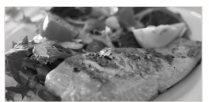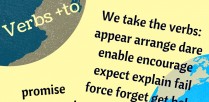Good grammar day!
Yesterday you did your homework on the order of the adjectives in the sentence. Today we continue our step-by-step learning process to plug in deeper into this subject.
I wouldn’t like you to become lazy, and I’m sorry about that. But I won’t give you the answers for the easy home tasks which you can quickly check and recall the grammar using the grammar page. Recently I’ve attended the workshop for teachers, and they persuaded me that the more often you revise the grammar, the better would be your result.
So today we learn new small grammar rules concerning adjectives.
To remind you: an adjective is a descriptive word that provides us with additional information about the object and qualifies the noun.
Adjective has comparative and superlative forms. I suppose that any language where are some children there are these forms of the adjectives:
E.g., “My sand castle is big.” “And mine is bigger.” “My castle is the biggest!”
Somewhere here there might be a fight or quarrel for fairness between the largest sand buildings and their owners.
There are two variants of comparative form. The first one is the easiest: we take an adjective, and add the needed word to it.
For example, you’re beautiful.
- You’re beautiful. You’re more beautiful. You’re the most beautiful.
The comparative form is used to compare something with anything else. Using the comparative we choose the word “more” to speak about increasing:
- I’m glad to see you! – Oh, I’m more glad to see you as I’ve missed you!
- You have a kilo of green apples, potherbs, cucumbers, and I have only two pounds of green apples, so your bag is more full.
This example is just for fun:
- I’m English. I lived in the UK for 18 years. – No, I’m more English as I was born in England in the UK.
Can you see? If we want (and the English grammar allows us to do so!), we can compare any adjective!
Please, pay attention, we can compare not only additional and active volume, but also the negative quantity and decrease the amount. To do so, we add the word “less.”
E.g., Your opinion is smart, while my point of view seems less smart.
Dear students, I’m waiting when you’ll say “Hey, teacher, we had similar rules with the nouns already!” If you’ve already stated so, then we continue with the rest of grammar for this subject, and you can be free after learning these rules.
The superlative forms are as follows:
- for positive quality: the most;
- for a negative number of qualities: the least.
Please, pay attention: there is the huge number of irregular adjectives.
For them the main rule is adding “-er” to the ending for positive comparative form, and “the +adjective+est” for positive superlative form.
For the rest of the negative quantity of quality, we add “less,” “the least.”
Examples:
- You’re smart, your friend Alan is smarter, your friend Bob is the smartest.
- These rules are easy, the previous time the grammar was easier, the next time you’re not sure that the rules would be the easiest.
- Your acquaintance Helen is smart, your friend Henry is less smart. Ok, your dog Joie is the least smart.
- The least easy grammar for today will be to recall the rules of irregular plural endings:
1. If a word ends with “consonant +y” in the plural, it changes the ending to “consonant +ie.” The same rule words for the adjectives and their comparative forms:
Easy – Easier – The easiest
2. If a word ends with a consonant the ending doesn’t change:
Hard – Harder – The hardest
I wish you gook luck in your learning! Study well and get the best results!









